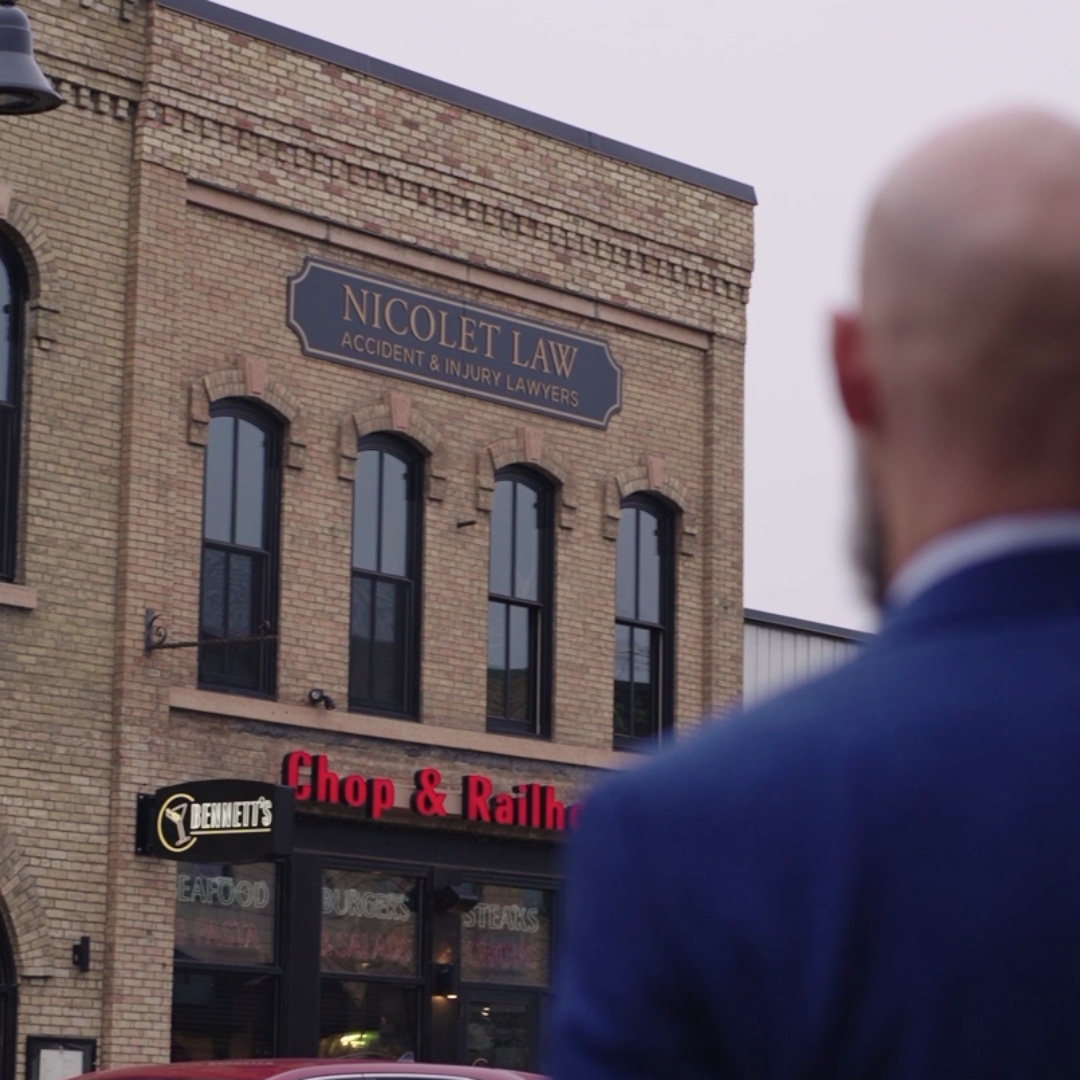Am I eligible to file a paraquat lawsuit? Paraquat, an herbicide, is used widely for grass and weed control. The United States Environmental Protection Agency (EPA) has given the herbicide a restricted use label, according to the Centers for Disease Control and Prevention (CDC). Only those who have licenses can use the highly poisonous chemical. Because paraquat is so dangerous to your health, the manufacturer adds a blue dye and a sharp odor to prevent people from mistaking it for coffee and other dark beverages. The manufacturer also adds a chemical that induces vomiting.
If you suffered exposure to paraquat and have Parkinson’s disease, you could be eligible to file a paraquat lawsuit. Experienced paraquat lawsuit attorneys review cases for several factors to determine whether a person who has Parkinson’s disease may file to recover damages.
Exposure to Paraquat
The most common way people suffer exposure to paraquat is by ingesting it or getting it on their skin. Poisoning risk by skin exposure is higher the longer you leave the poison on your skin, use a concentrated version of the herbicide, or get paraquat in open wounds. Even several rounds of short exposure could lead to paraquat poisoning.
While the CDC does not have knowledge of those using paraquat in wars or terrorist attacks, doctors have found that some who smoked marijuana suffered lung damage from the herbicide. If a farmer used paraquat near a field of marijuana, it could blow onto the plants.
Additionally, inhaling the vapors while working with paraquat could cause poisoning and lung damage. Those at the highest risk of suffering paraquat poisoning are licensed applicators.
When paraquat comes in direct contact with the stomach, intestines, and mouth lining, it causes immediate damage. Once it enters the body, it goes through the blood and a person’s lymphatic system and could severely affect the kidneys, lungs, and liver.
Finally, if the exposure to paraquat is high, such as ingesting it and not seeking medical attention immediately, the herbicide could cause death.
After Exposure to Paraquat
If you suffered exposure to paraquat, you should seek medical attention immediately, especially if you ingested the herbicide. If you believe you have suffered paraquat poisoning because of exposure over a period of time, or if you have Parkinson’s disease that you believe is attributable to paraquat, seek medical attention if you have not already (you will need a diagnosis) and contact a paraquat attorney for a free case evaluation. You can only recover compensation for paraquat exposure if the exposure caused Parkinson’s disease.
Paraquat and Parkinson’s Disease

A study published in the American Journal of Epidemiology found that residents who lived within about 1,630 feet (500 meters) of where farmers and others sprayed paraquat had a 75 percent increase in the risk of developing Parkinson’s disease.
While most people exposed to paraquat are agricultural workers, those living in rural areas where farms use paraquat also have a higher risk of exposure to the herbicide. Those who have Parkinson’s disease and suffered exposure to paraquat over the years could file a paraquat lawsuit.
Other than agricultural workers and those who live near a farm, tank fillers, chemical mixers, farmers, and farmworkers exposed to paraquat have a higher risk of developing Parkinson’s disease from paraquat exposure.
Symptoms of Parkinson’s Disease
Not everyone with Parkinson’s disease has the same symptoms. In some cases, the early signs of the disease might be so mild that you don’t notice them. According to the Mayo Clinic, symptoms sometimes start on one side of the body and will be worse on that side, even after the symptoms start affecting the limbs on both sides of the body.
The symptoms of Parkinson’s disease might include:
- Tremors that might start in your hands or fingers, or even a limb. In some cases, people could suffer pill-rolling tremors that cause them to rub their forefinger and thumb back and forth. Also, in some cases, tremors might decrease when you perform tasks.
- Rigid muscles in any part of the body. The stiff muscles are often painful and affect your range of motion.
- Posture and balance issues, including stooped posture and falling.
- Bradykinesia, or slowed movement, which makes doing even the simplest tasks difficult. You might notice that your steps become shorter or that getting out of a chair is more challenging. Some people might even drag their feet.
- Changes in how you write, including difficulty writing and changes to your penmanship.
- Changes in how you speak, including speaking softer or faster, slurring, or hesitating before talking. People might notice that your tone of voice is monotonous.
- Losing automatic movements causing a decrease in unconscious movements, such as smiling and blinking.
If you suffer from some of these symptoms or notice a loved one suffering from these symptoms, seek medical attention as soon as possible to determine whether Parkinson’s disease or another issue is causing them.
Complications of Parkinson’s Disease
If you have Parkinson’s disease, you could suffer from additional complications, many of which doctors can treat.
Additional issues as a result of suffering from Parkinson’s disease might include:
- Difficulty thinking and dementia, which usually happen later in the disease’s progression.
- Emotional changes, including depression, which could happen during the early stages of Parkinson’s disease. Other emotional changes might include anxiety, loss of motivation, and fear.
- Difficulty swallowing, which could lead to drooling.
- Chewing issues and other eating problems once Parkinson’s starts affecting muscles in your mouth.
- Sleep disorders, including waking up frequently and falling asleep during the day. Other sleep disorders might include acting out your dreams and rapid eye movement (REM) sleep behavior disorder (RBD).
- Bladder issues including difficulty urinating or controlling your bladder.
- Constipation if the digestive tract slows down.
- Changes in blood pressure—usually a drop.
- Issues with your sense of smell.
- Fatigue.
- Sexual dysfunction
- Pain, which could be in one specific location or throughout your body.
As with the earlier symptoms of Parkinson’s disease, not everyone will suffer from all of these complications or the same complications.
Paraquat Alternative Names
The United States has one major company that manufactures paraquat—Syngenta. Smaller manufacturers, including Chevron and Growmark, may also make the herbicide.
Some of the brand names of paraquat include:
- Action
- Almoxone
- Blanco
- Bonedry
- Bonfire Herbicide
- Crisquat
- Cyclone SL 2.0
- Delta-Quat
- Devour
- Dexuron
- Esgram
- Firestorm
- Garmixel
- Goldquat
- Gramoxone
- Helmquat 3SL
- Inferno
- Kemoxone
- Marman Herbiquat
- Ortho Paraquat CL
- PP148
- Para-Shot 3.0
- Parakill
- Parakwat
- Para-SHOT
- Parazone 3SL
- Quik-Quat
- Scythe
- Secaquat
- Uniquat
- Weedless
If you have ever worked with any of these herbicide brands, you should closely monitor your health since you could develop Parkinson’s disease if you haven’t already. Look for the mild symptoms of Parkinson’s disease, and if you have even a suspicion, see your doctor for a diagnosis.
Because paraquat is limited to licensed users in the United States, you may not be someone who had little exposure to paraquat if you used some type of weedkiller in your backyard.
However, if you live near a large agricultural operation or farm, you could have inhaled the vapors from paraquat—even enough to cause Parkinson’s disease and the accompanying symptoms and complications.
Filing a Paraquat Claim

The best way to file a paraquat claim is to contact a paraquat lawyer. It is sometimes difficult to tell if paraquat caused your Parkinson’s disease.
Some of the factors you need to take into consideration when considering filing a paraquat claim include:
- When you suffered exposure to paraquat.
- How you were exposed to paraquat, whether you used the herbicide or were in the vicinity of a farm that used it, or if you ingested it or got it on your skin.
- The medical expenses you sustained because of Parkinson’s disease.
- How Parkinson’s disease affected your life.
To file a paraquat lawsuit, you must have suffered exposure to the herbicide and have Parkinson’s disease. A statute of limitations prevents you from filing a claim if more than a certain time has passed since your diagnosis. The statutes of limitations vary from state to state. After reviewing your case, a paraquat lawyer can tell you how long the statute of limitations is. You must contact a paraquat attorney as soon as you receive a diagnosis, as the statute limits the time to file your claim.
Poisoning Symptoms of Paraquat
If you suffered exposure to paraquat, you might have certain symptoms. These symptoms usually develop quickly.
Paraquat poisoning symptoms include:
- Nausea and/or vomiting
- Mouth and throat pain and/or swelling
- Difficulty breathing
- Abdominal pain
- Seizures
- Confusion
Other symptoms that could take several hours to manifest but still manifest quickly include:
- Lung scarring
- Respiratory failure
- Pulmonary edema
- Kidney failure
- Liver failure
After exposure to paraquat and suffering any of the minor symptoms, even if the exposure was some time ago, you should always seek medical attention and tell medical professionals that you suspect you suffered exposure to the herbicide. Creating a chain of documentation could help you with a lawsuit should a doctor diagnose you with Parkinson’s disease now or in the future.
Recovering Damages After Paraquat Poisoning and a Parkinson’s Disease Diagnosis
If you win a settlement or lawsuit for paraquat poisoning, you might recover compensation for medical expenses and lost wages. Since Parkinson’s disease is debilitating, you could have medical expenses for the rest of your life. You could also recover the loss of future earning capacity if you can no longer work the same job due to the poisoning.
Finally, you might recover extra compensation in the form of non-economic damages, including:
- Pain and suffering, including emotional distress
- Loss of quality of life
- Loss of companionship and/or consortium
- Loss of use of a body part and/or bodily function
The amount you could recover depends on several factors, including the severity of your symptoms and how far the disease has progressed. If you have had Parkinson’s for a while, medical records and your own documentation of your symptoms, trials, and tribulations could also help with determining the amount of compensation you might receive.
Hiring the Right Lawyer
Paraquat lawyers are personal injury lawyers, but not all personal injury lawyers are paraquat attorneys. Before retaining a personal injury attorney, ensure the attorney has experience handling paraquat cases and multi-district and/or class action lawsuits.
Reviewing an attorney’s website and blogs will tell you whether an attorney handles paraquat lawsuits. Once you narrow your list down, you can ask specific questions during your initial case evaluation.
What If I Can’t Afford a Lawyer?
But you can! When you retain an experienced paraquat lawyer, your initial case evaluation is free and without obligation. Most paraquat lawyers work on a contingency basis, meaning you only pay attorney’s fees if you win your case.
A paraquat lawyer can often give direction on finding the specialized doctors you need if you don’t already have someone treating your Parkinson’s disease. Many attorneys also have a list of specialists that could help treat or deal with many symptoms of Parkinson’s disease.
Covering Medical Expenses

Until you receive a settlement or win a jury trial for Parkinson’s disease caused by paraquat poisoning, you can cover your medical expenses with your health insurance. If you have Medicare or Medicaid or receive treatment from the Veteran’s Administration, those programs will also cover treatment for Parkinson’s disease.
If your insurance charges a co-payment and/or a deductible for Parkinson’s disease treatment, always keep copies of the invoices you paid. That is the easiest way to prove that you suffered economic losses because of your exposure and subsequent treatment for paraquat.
If you suffered exposure to paraquat and have or suspect you have Parkinson’s disease, contact a personal injury lawyer as soon as possible for a free case evaluation.
